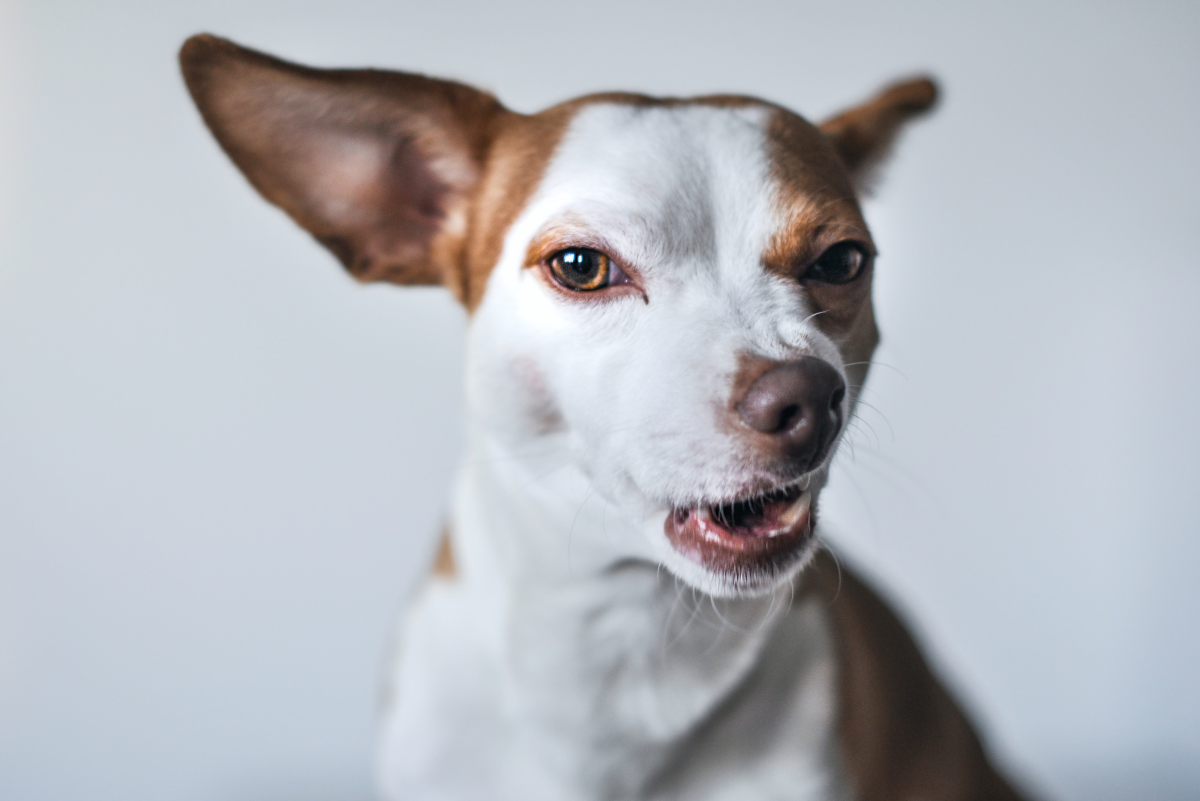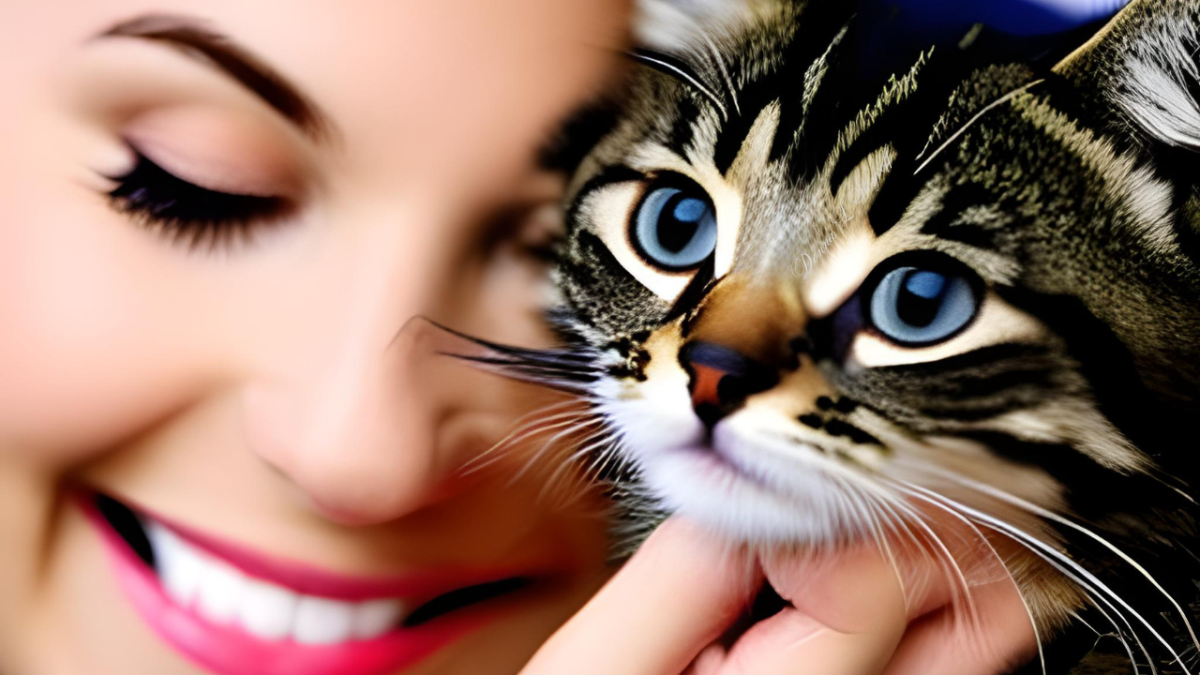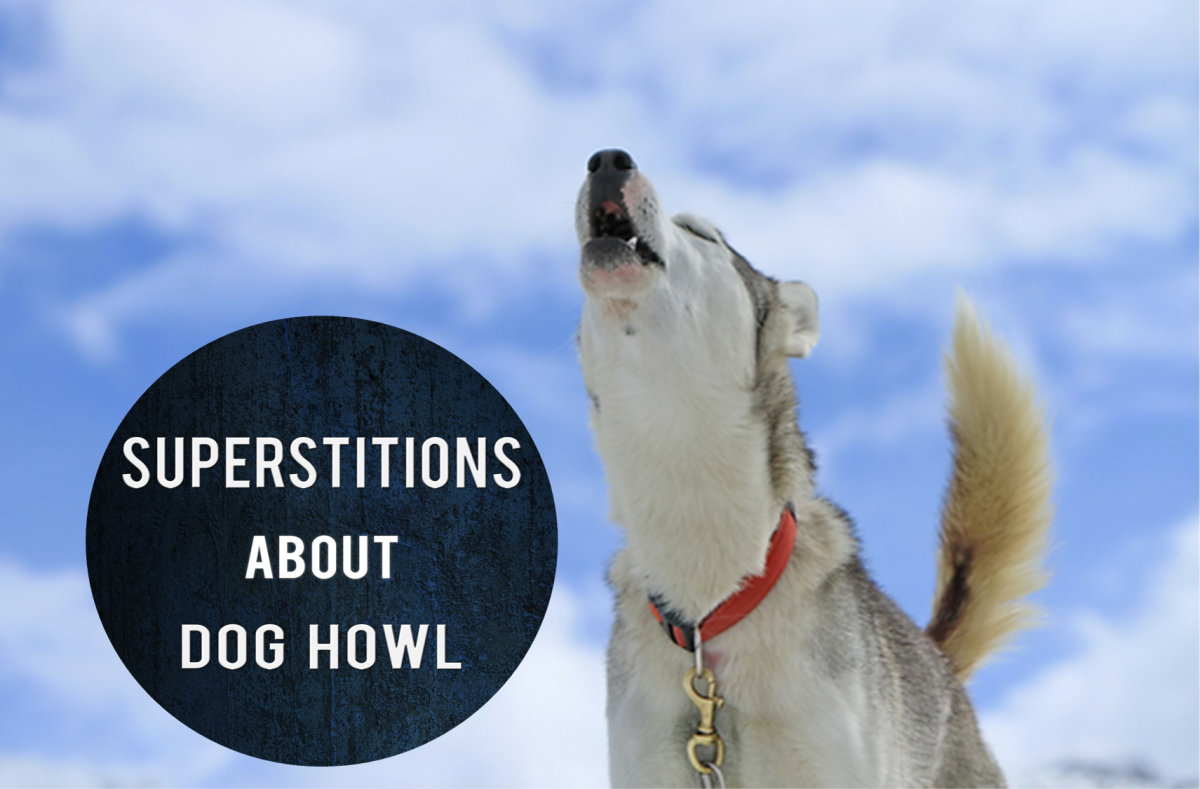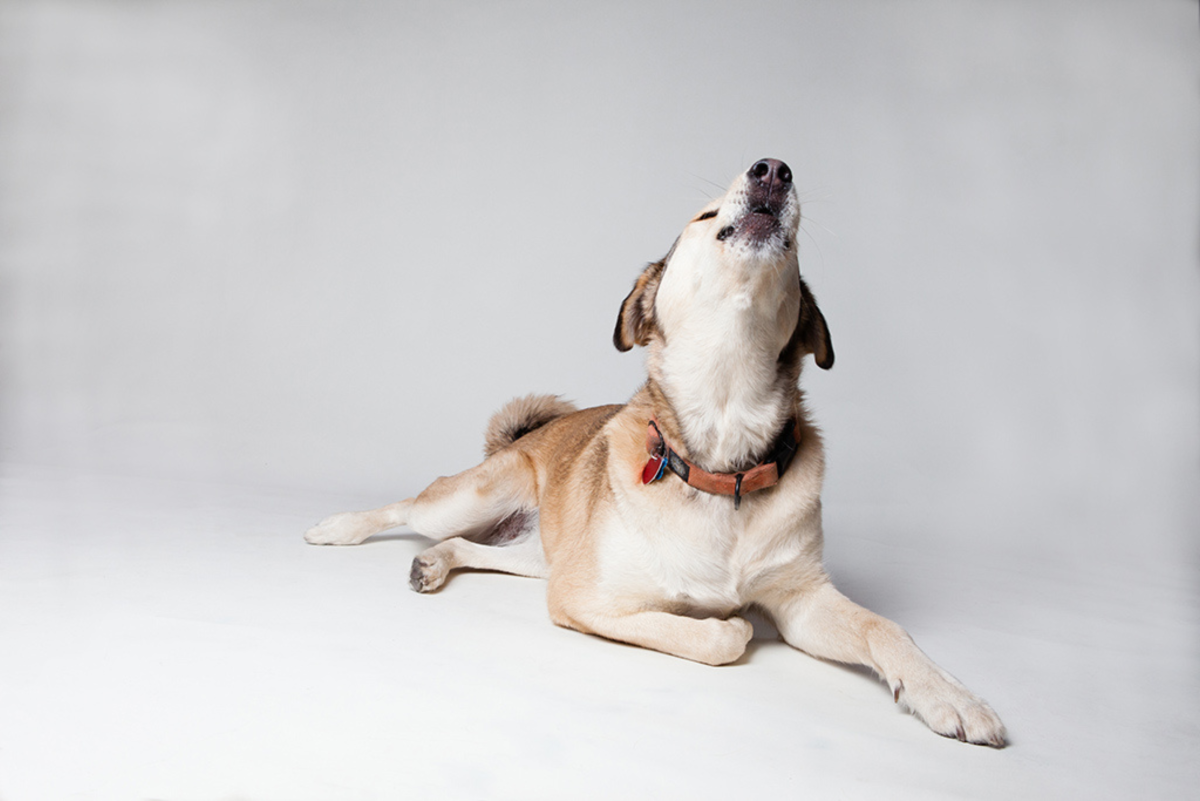Puppy Biting - How to Deal with It
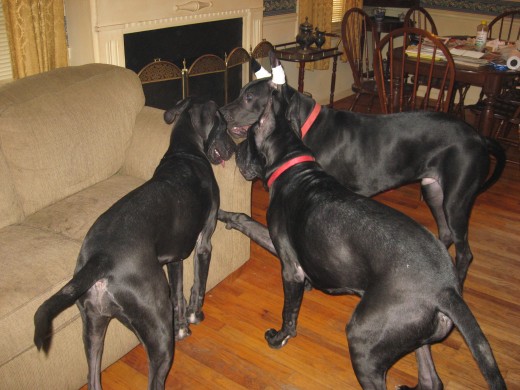
Puppy Biting
So you got a new puppy. He's sweet as can be...sometimes. At other times, you're convinced that he's part alligator or snapping turtle. Yes, puppies bite. They bite a lot. Of course, some little canines bite more often than others do, and some of them bite harder. The frequency and strength of bite can depend on the puppy's age, breed, size, individual personality, and/or its socialization with other animals and with humans. As I mentioned, biting can vary greatly among puppies. Biting has never been a big issue with any Great Dane puppy I've had, but I recently got a Great Pyrenees pup, and he's a prolific biter. Before I began curbing his bites, he got points for strength of bite and for frequency of bites. Once I began managing his biting, Ranger has become a much better behaved pet, and I no longer wear bite wounds on my fingers, hands, or arms. Continue reading for some tips on dealing with puppy biting.
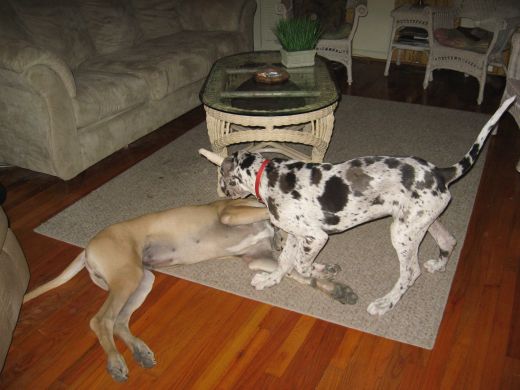
Why Do Puppies Bite So Much?
Biting is a perfectly natural instinct for canines. Genetically speaking, canines are hunters, and they develop skills through play-fighting, which includes biting. Also, just like human babies, puppies often explore things with their mouths. One big difference, of course, is that other than the extremely rare exception, human babies don't have teeth. Puppies will get a mouthful of teeth, and some of the teeth are as sharp as needles.
Another reason puppies bite a lot is to help relieve the discomfort caused by teething. As the puppy teeth fall out and are replaced by adult teeth, the gums can become painful and itchy. Biting and chewing help relieve the pain and itching.
Your new puppy is going to bite and chew. Your job is to manage this behavior and teach your pet to control his biting and chewing tendencies.
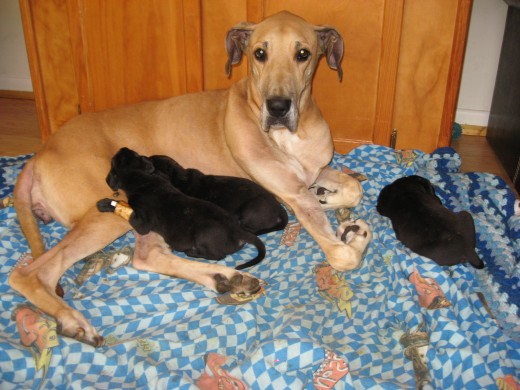
Acquired Bite Inhibition
Puppies go through a stage, which lasts for the first few months of their lives, when they learn what is and is not socially acceptable. They first learn proper behavior from their mothers and from their litter mates, and biting is a big part of this. Young canines don't need to learn how to bite. It comes naturally. They do, however, need to learn how hard they should bite. Once their puppy teeth start coming in, at around the age of three weeks, nursing can become uncomfortable for the mother dog. When a nursing pup bites down too hard, the mother will usually get up and leave. Of course, the pup isn't happy about his meal disappearing, and this becomes his first lesson in acquired bite inhibition.
What is acquired bite inhibition? It's the puppy's learning to control the strength of his bite. Through feedback and responses he receives from his bites, the pup gradually learns that he can adjust the power behind his bites, and he learns what is acceptable. Learning and implementing this acquired knowledge is a huge part of canine development.
In addition to receiving feedback from the mother dog, puppies also learn from their siblings. During play, pups bite each other. When a puppy bites too hard, his brother or sister will usually yelp in response. If the offending canine continues his bad behavior, the victim will usually abandon the play. After a few experiences, puppies will begin to get the idea not to bad so hard. As the puppy gets older, he might get bite feedback from older dogs, other animals, and humans. This is where you come in.
What To Do When Your Puppy Bites
Most puppies find human hands fascinating. They move around a lot, and they have ten fingers that are the perfect size and texture for little mouths and teeth. The same might be true for human feet and toes. When your pup begins to gnaw on you, pay close attention to how hard the bite is. If it hurts, let out a yelp. This should startle the puppy enough to make him stop biting for a second, long enough for you to remove your offended body part from the pup's jaws. If the puppy continues biting too hard, put your hands behind your back and ignore the pup for a few seconds. After resuming play, if the pup still bites too hard, stop playing and ignore him for a longer period. Avoid snatching your hand away and allowing the pup to grab it again immediately. Doing so will reinforce the bad behavior, creating a game in the pup's mind.
Once the puppy gets the idea that mouthing and soft bites are okay, be sure to praise him. Reward him with more play, more belly rubs, and more human attention and interaction.
It's also important to provide the pup with numerous items that are acceptable for biting and chewing. Be sure to include a variety of sizes, shapes, and textures. When the pup wants to chew on you, offer him a chew toy, instead.
Another way to help the puppy learn to inhibit his bite is to allow him play time with other puppies that are about his size and age. If this isn't a possibility, an older puppy or adult dog with a patient, tolerant temperament could work. For example, Ranger loves to play with our adult golden retriever, Jake. Jake allows Ranger to bite on him, but when the puppy bites too hard, Jake lets him know. He either snaps at Ranger or stops play and escapes to my bed, where the bothersome pup can't reach him.
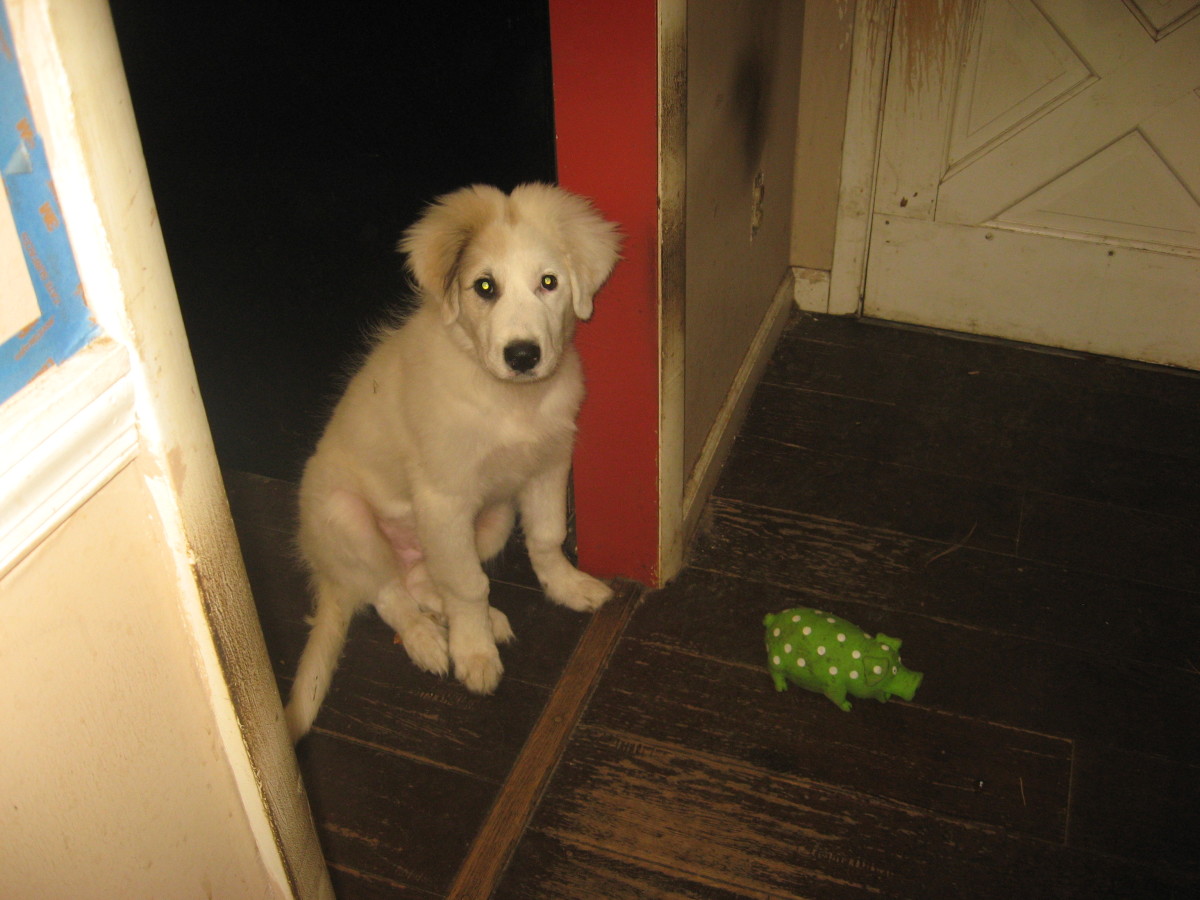
Don't Punish – Manage
It's important not to punish your puppy for biting. Puppies need to bite, and they need to learn bite inhibition. At some point in the future, a controlled bite versus a full strength bite could mean the difference in an almost harmless nip and a serious injury. If your puppy isn't allowed to bite at all, he'll never learn to control his bite strength, and he'll never learn when this control should be used.
Puppies that are punished for any type of biting will become frustrated and confused. In the long run, it could even make them more aggressive. There's a fairly small window for teaching your pup bite inhibition, so be sure to implement the training in the first few months of your puppy's life. Instead of punishing your puppy for biting and chewing, help him learn to manage his behavior properly.

